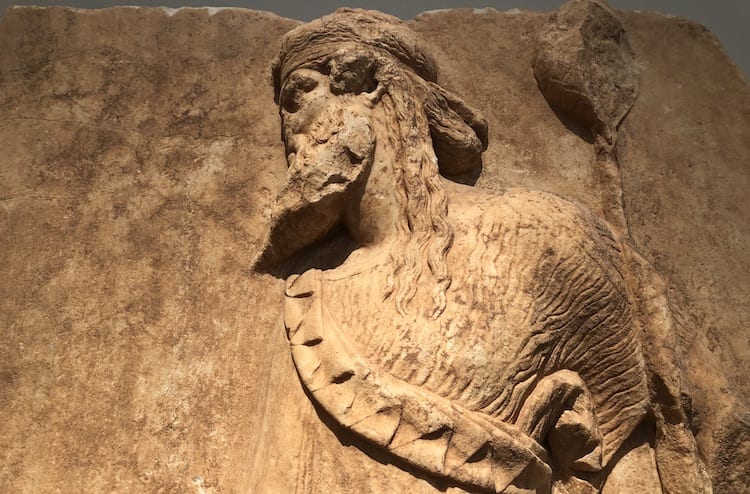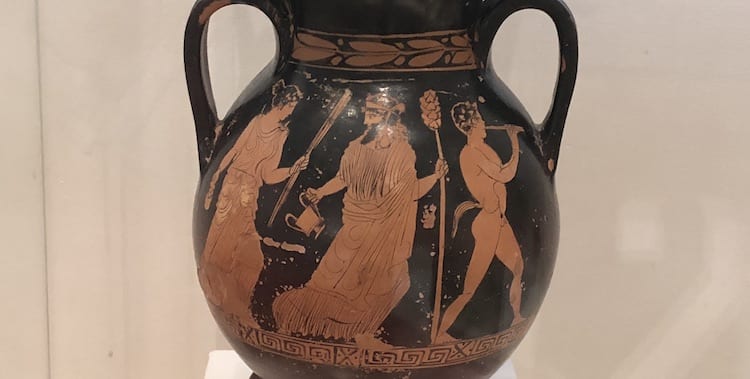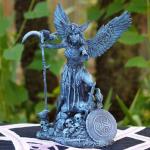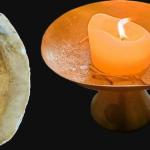Dionysus is considered a god of those on the edges of society, especially LGBTQ+/rainbow folk and immigrants. He himself was considered an outsider. From his birth he was cast out by Hera, and then cast out again by Zeus for his own protection. His origin story varies; the place he is said to have been raised, Mt. Nysa, could be in Egypt, Phoenicia, India, or Arabia. He’s a god of indeterminate and ever fluctuating borders.

There are numerous long and droning texts about all the foreign cities he visits in his adulthood in what seems to be a conquest across the Eurasian/ African continents. I prefer to imagine him as a college student taking a year off to hike across Egypt, Syria, India, Thrace, and Thebes to find himself.
While traveling he conquered/liberated various cities and left a peaceful, civil society with fair laws in his wake. This leads me to believe those who say he was a conqueror or an antagonist were those in positions of power; those who benefitted from the status quo had the most to lose. He has always been on the side of the underdog, the marginalized.

Various texts refer to him as effeminate or womanly; in today’s understanding of gender, many of us who work with Dionysus consider him nonbinary or genderfluid. He’s also had relationships with most men and women, most notably Ariadne.
One man “loved by Dionysus” was Ampelus, the son of a nymph and satyr. He fell tragically to his death while picking grapes and Dionysus lifted him into the sky, his body forming the constellation “Grape Gatherer”- typical behavior when you’re a god and your mortal lover dies.
When Dionysus journeys to the Underworld to retrieve his mortal mother Semele, it is Polymnus who showed him the door. In return, he “asked from him the reward that could be given without loss.” Dionysus agreed to sleep with him upon return from the Underworld, but some say Polymnus (a mere mortal) died before D could make good on his promise.
We’re his people. It stands to reason he would have a vested interest in the safety of the rainbow community, especially in areas where being yourself is a revolutionary act.

In my experience, Dionysus is hard to pin down by design, and any attempts to fit him in a rigid box are doing him a disservice. Fluidity is an intrinsic component of his energy.
Dionysus knows how it feels to be told you are unwelcome and unwanted; he knows that pain, and he knows how to fight through it and carve a home out for yourself, and knows when to leave and find somewhere that will nourish you. He’s a god for the modern age, a god of the revolution to come.
He is here to remind you you’re not alone here. Change will come, and sometimes, it’s even for the better.


















